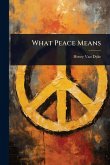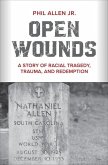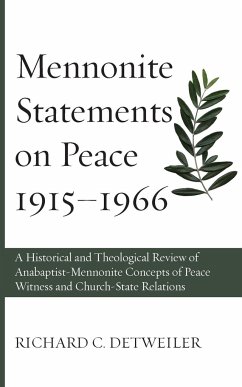"What Peace Means," by Henry van Dyke, explores the multifaceted concept of peace in the context of early 20th-century international relations and the shadow of World War I. Delving into the complexities of nationalism and patriotism, the book examines the true meaning of peace beyond the absence of war. Van Dyke offers insights into achieving lasting peace through understanding and cooperation between nations. This historical text provides valuable perspective on the social and political forces shaping the world during a pivotal era in United States and world history. A timeless exploration of peace, this book remains relevant for anyone interested in the enduring pursuit of harmony and the avoidance of conflict. It serves as a reminder of the importance of fostering understanding to prevent the recurrence of devastating wars. This work has been selected by scholars as being culturally important, and is part of the knowledge base of civilization as we know it. This work is in the public domain in the United States of America, and possibly other nations. Within the United States, you may freely copy and distribute this work, as no entity (individual or corporate) has a copyright on the body of the work. Scholars believe, and we concur, that this work is important enough to be preserved, reproduced, and made generally available to the public. We appreciate your support of the preservation process, and thank you for being an important part of keeping this knowledge alive and relevant.
Bitte wählen Sie Ihr Anliegen aus.
Rechnungen
Retourenschein anfordern
Bestellstatus
Storno









